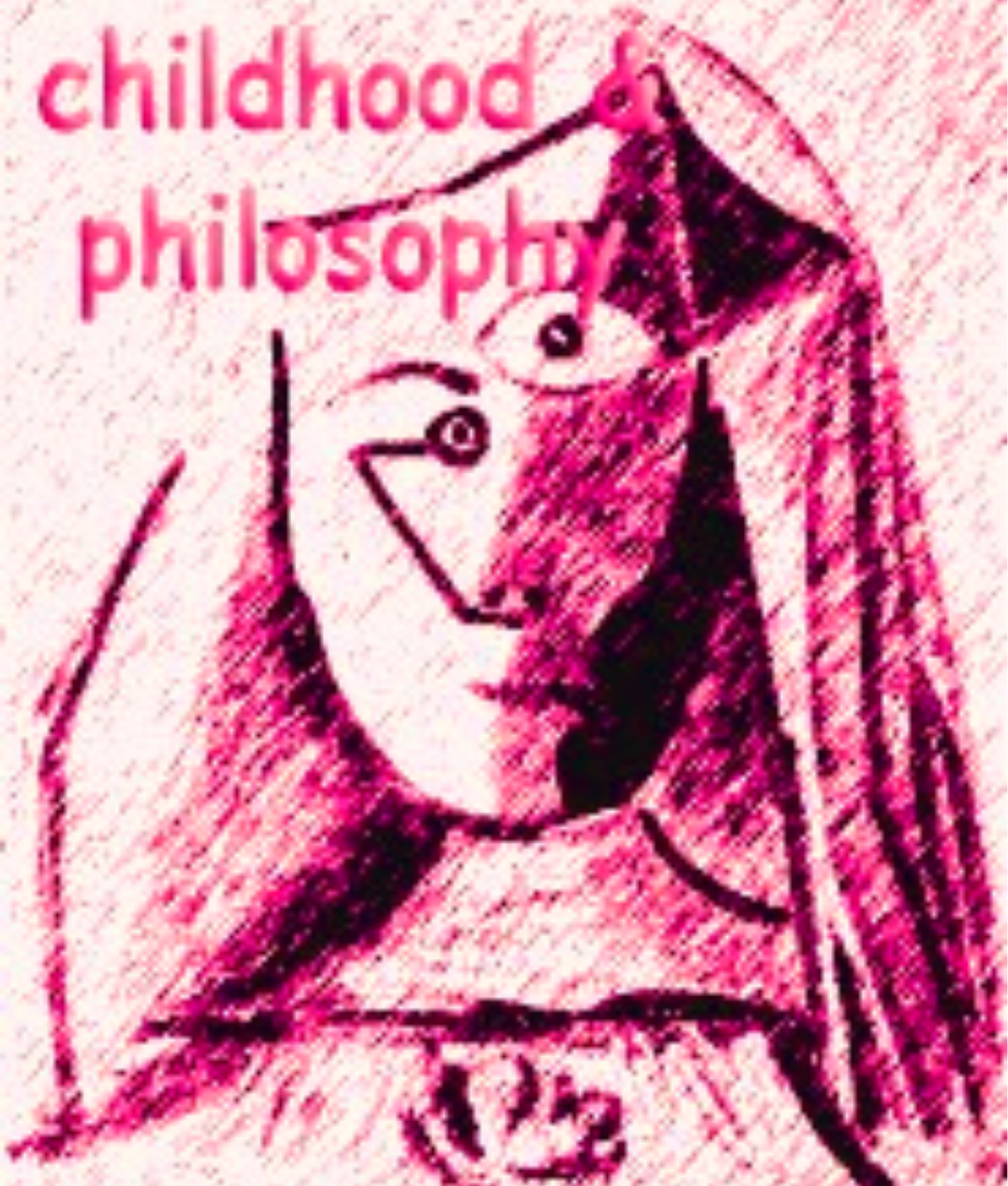a politização da criança educável através do poder etéreo
DOI:
https://doi.org/10.12957/childphilo.2022.63214Palavras-chave:
poder, pedagogia crítica, subjetivação, politização, autonomia.Resumo
O artigo argumenta que uma concepção predominante de poder nas ciências educacionais é prejudicial à pedagogia tanto como campo de prática quanto como disciplina e é também inepto como conceito científico do ponto de vista epistemológico. A designação deste conceito de poder como "etéreo" pode fornecer aos discursos teóricos da educação um meio de analisar e criticar posições e argumentos que têm minado a autonomia da educação desde o estabelecimento do pensamento foucaultiano nas ciências educacionais. Primeiro, este artigo argumenta que a noção pedagógica da criança educável depende dos conceitos de individualidade, plasticidade e autonomia dentro da estrutura de uma ontologia negativa. Em segundo lugar, problematiza os efeitos da substituição destes conceitos nas ciências educacionais pós-modernas críticas do poder para a pedagogia em geral e a criança como seu conceito chave em particular. A criança politizada é concebida como subjugada, passiva, vulnerável, e o que é crucial: como uma coisa, ou seja, pedagogicamente ineducável, mas uma identidade apenas moldável através do poder. Em terceiro lugar, ela analisa a base filosófica desta mudança em direção à politização da criança, introduzindo o conceito de "poder etéreo". O artigo conclui com uma reflexão sociológica sobre a dimensão societal desta transformação fundamental da educação e sugere a emergente pedagogia pós-crítica como um possível remédio.
Downloads
Referências
Ball, Stephen J. (2017): Foucault as Educator. Cham (CHE): Springer Nature.
Bateson, Gregory (1972): Steps to an ecology of the mind. New York: Ballantine Books.
Deuber-Mankowsky, Astrid (2008): Nothing is Political,Everything Can Be Politicized: On the Concept of the Political in Michel Foucault and Carl Schmitt. Telos, 142, S. 135-161.
Dewey, John (1916): Democracy and Education. An Introduction to the Philosophy of Education. New York: Macmillan.
Einstein, Albert (1920): Aether und Relativitätstheorie. Rede – Uitgesproken bij de aanvaarding van het ambt van bijzonder hoogleerar aan de Rijks Universiteit te Leiden. Berlin: Julius Springer.
Eisler, Rudolf (1910): Wörterbuch der philosophischen Begriffe, 3. Aufl., Erster Band A-K. Berlin: Ernst Siegfried Mittler und Sohn.
Forrest, Peter (2012): The Necessary Structure of the All-pervading Aether. Discrete or Continuous? Simple or Symmetric? Frankfurt a.M.: Ontos.
Heider, Fritz (1959): On Perception, Event Structure, and Psychological Environment. Selected papers. New York: International Universities Press.
Herbart, Johann Friedrich (1984 [1835]): Johann Friedrich Herbart. Band 1. Umriß pädagogischer Vorlesungen, besorgt von Josef Esterhues. Paderborn: Schöningh.
Hertz, Heinrich (1987 [1889]): Über die Beziehungen zwischen Licht und Elektrizität. Vortrag gehalten bei der 62. Versammlung deutscher Naturforscher und Ärzte in Heidelberg, In: Autrum, H. (Hrsg.): Von der Naturforschung zur Naturwissenschaft. Vorträge, gehalten auf Versammlungen der Gesellschaft Deutscher Naturforscher und Ärzte (1822-1958). Berlin; Heidelberg, New York, London, Paris, Tokyo: Springer-Verlag.
Hodgson, Naomi/Vlieghe, Joris/Zamojski, Piotr (2017): Manifesto for a Post-Critical Pedagogy. Earthy (Milky Way): punctum books.
Kant, Immanuel (1900): Kant on Education (Ueber Paedagogik), trans. Annette Churton. Boston: D.C. Heath and Co.
Kant, Immanuel (1998[1781]): Critique of Pure Reason. Cambridge: Cambridge University Press.
Kassung, Christian/Hug, Marius (2008): Der Raum des Äthers. Wissenarchitekturen – Wissenschaftsarchitekturen, In: Kümmel-Schnur, A./Schröter, J. (Hrsg.): Äther. Ein Medium der Moderne. Bielefeld: transcript, S. 99-129.
Kelvin, Lord (1884): Wave Theory of Light. Journal of the Franklin Institute, 118, S. 321-341.
Luhmann, Niklas (1982): Funktion der Religion. Frankfurt a.M.: Suhrkamp.
Luhmann, Niklas (1990a): Essays on Self-Reference. New York: Columbia University Press.
Luhmann, Niklas (1990b): Meaning as Sociology's Basic Concept, Essays on Self-Reference. New York: Columbia University Press.
Luhmann, Niklas (1990c): Tautology and Paradox in the Self-Descriptions of Modern Society, In: Luhmann, N. (Hrsg.): Essays on Self-Reference. New York: Columbia University Press, S. 123-143.
Luhmann, Niklas (1991): Das Kind als Medium der Erziehung. Zeitschrift für Pädagogik, 37, S. 19-40.
Luhmann, Niklas (1995): Social systems. Stanford, Calif.: Stanford Univ. Press.
Maxwell, James Clerk (1960): „Ether (Encylopedia Britannica 9. Auflage, 1875-1889)“, In: Niven, W. D. (Hrsg.): The Scientific Papers of James Clerk Maxwell, Vol. II. New York: Dover Publications, Inc., S. 763-775.
Oken (1831): Lehrbuch der Naturphilosophie, 2. Aufl. Jena: Friedrich Frommann.
Papastephanou, Marianna/Zembylas, Michalinos/Bostad, Inga/Oral, Sevget Benhur/Drousioti, Kalli/Kouppanou, Anna/Strand, Torill/Wain, Kenneth/Peters, Michael A./Tesar, Marek (2020): Philosophy of education in a new key: Education for justice now. Educational Philosophy and Theory, August 2020, S. 1-16.
Reichenbach, Roland (2003): Pädagogischer Kitsch. Zeitschrift für Pädagogik, 49, S. 775-789.
Rømer, Thomas Aastrup (2011): Postmodern Education and the Concept of Power. Educational Philosophy and Theory, 43, S. 755-772.
Rueschemeyer, Dietrich (1977): Structural Differentiation, Efficiency, and Power. American Journal of Sociology, 83, S. 1-25.
Russell, Glenda M./Bohan, Janis S. (2016): Institutional Allyship for LGBT Equality: Underlying Processes and Potentials for Change. Social Issues. A Journal of the Society for the Psychological Study of Social Issues, 72, S. 335-354.
Sartre, Jean-Paul (1966): Being and nothingness. A phenomenological essay on ontology. New York: Pocket Books.
Seiffert, Helmut (1997): Einführung in die Wissenschaftstheorie 4. Wörterbuch der wissenschaftlichen Terminologie. München: C.H. Beck.
Sturm, Sean (2020): Philosophy in the key of G: A response to “philosophy of education in a new key”. Educational Philosophy and Theory, May 2020, S. 15-16.
Taylor, Mitchell James (2020): The concept of functional differentiation and the logic of comparative functionalism. A study in sociological theory. Melbourne: The University of Melbourne.
Williams, Henry Smith/Williams, Edward H. (1904): A History of Science in Five Volumes. Volume III. Modern Development of the Physical Sciences. New York; London: Haper & Brothers.
Willmott, Hugh (1992): Postmodernism and excellence: the de‐differentiation of economy and culture. Journal of Organizational Change Management, 5, S. 58-68.




